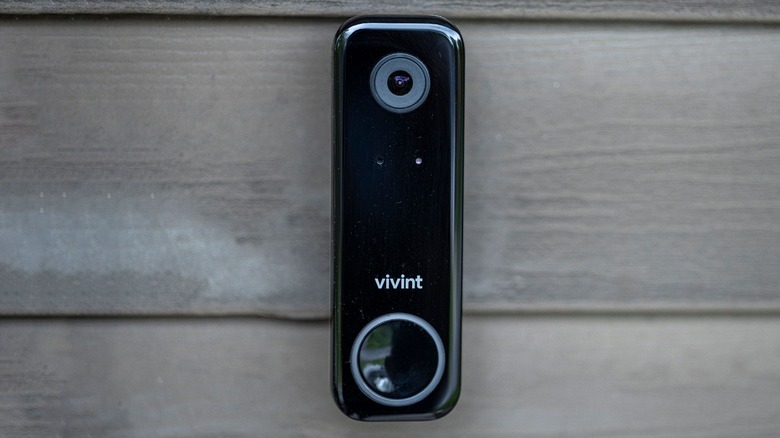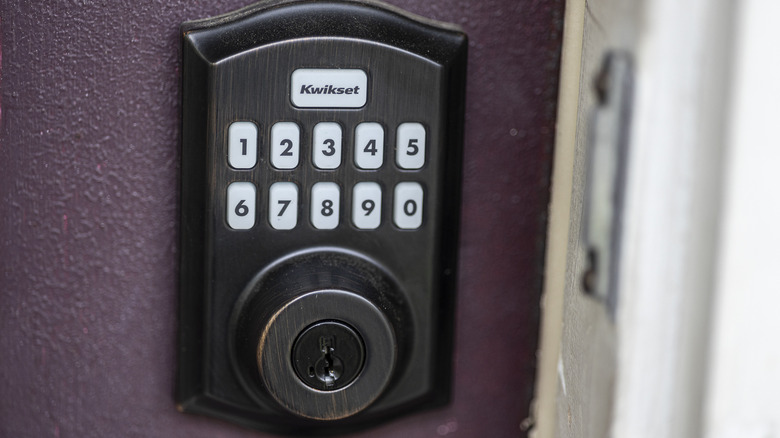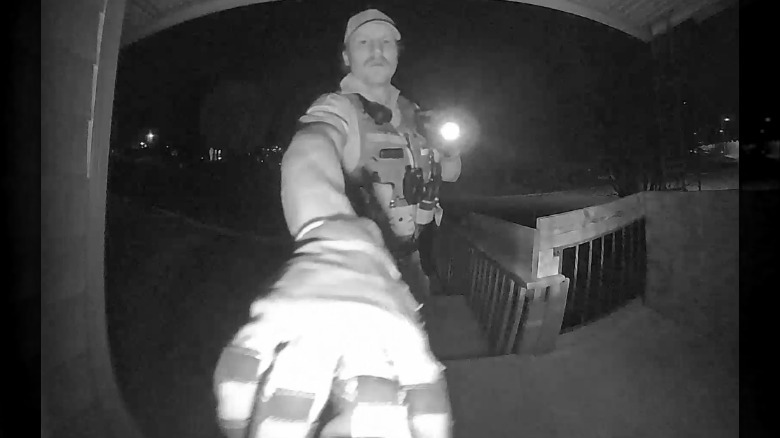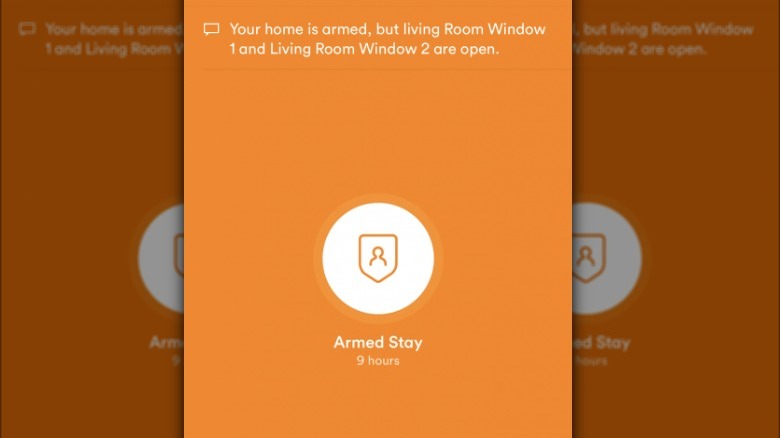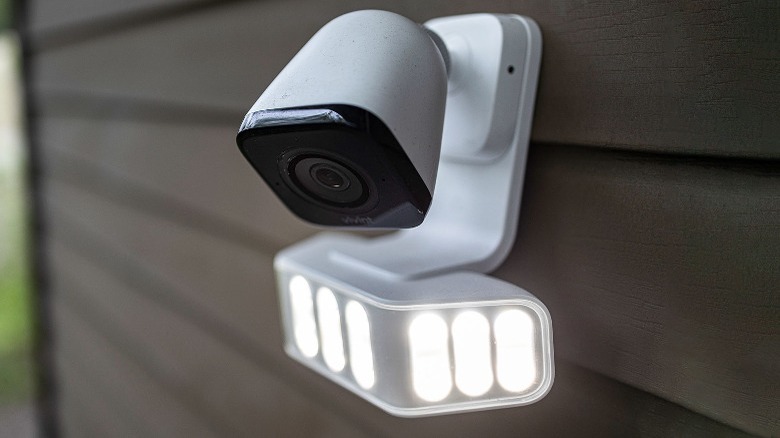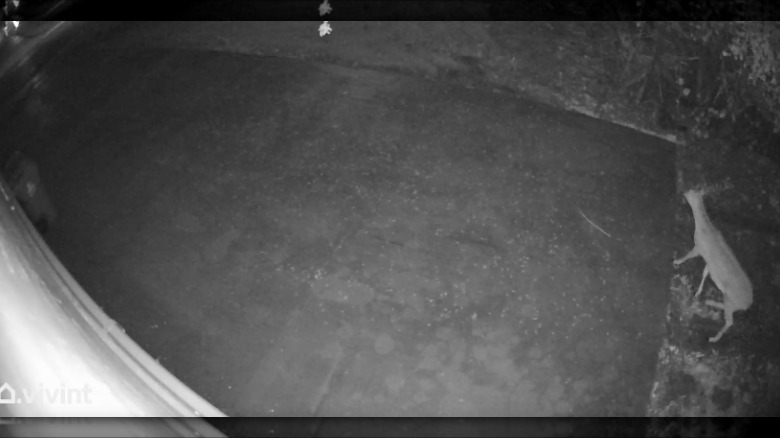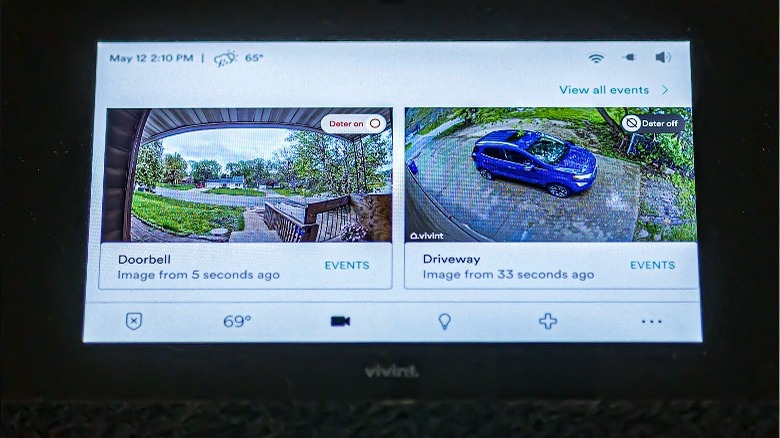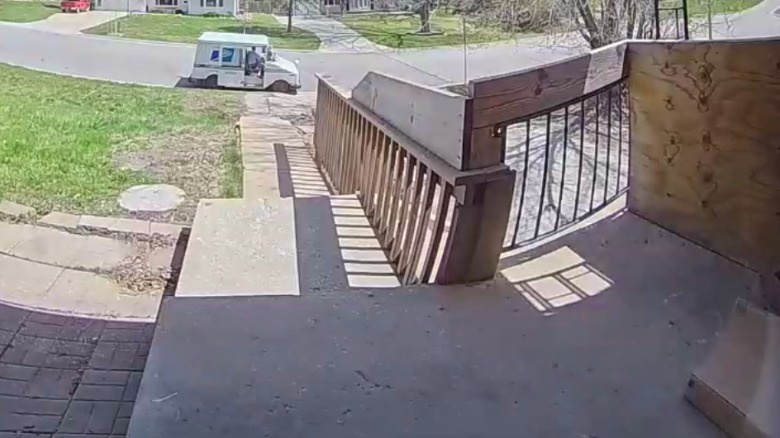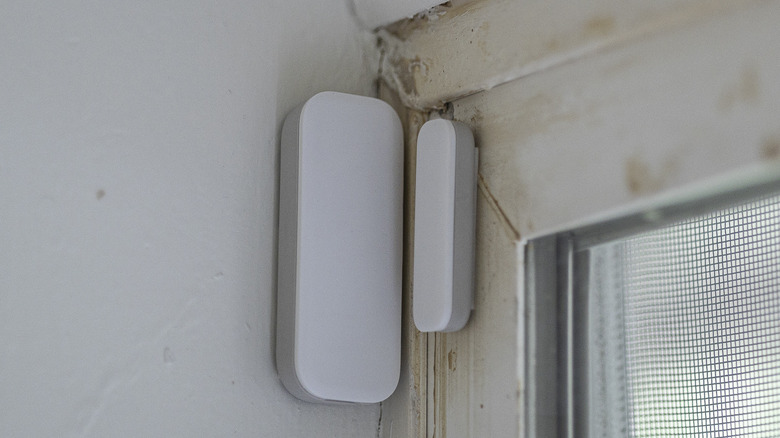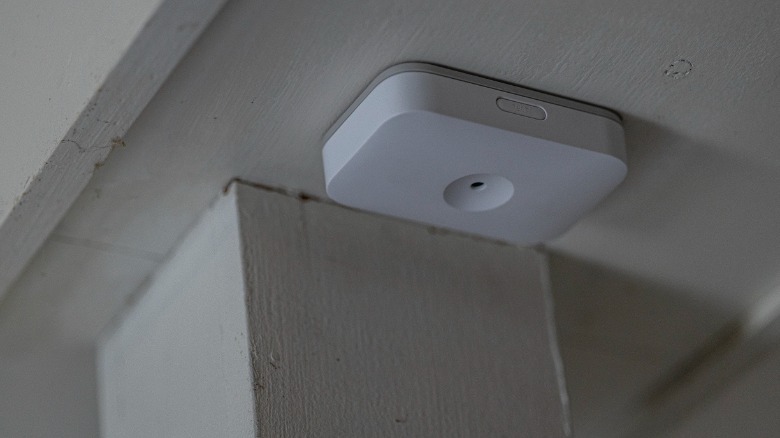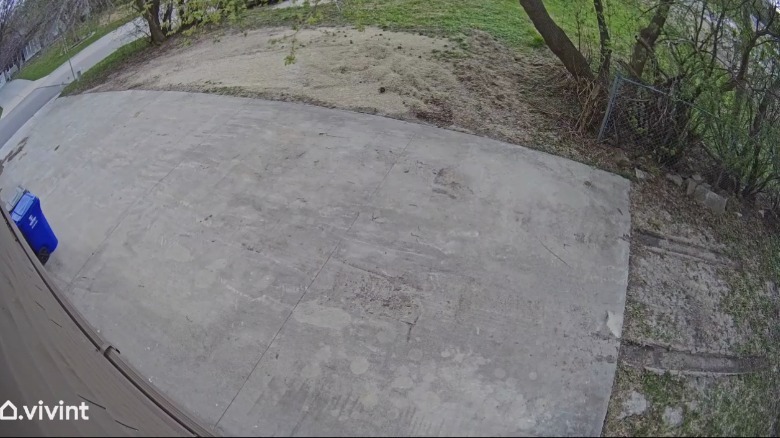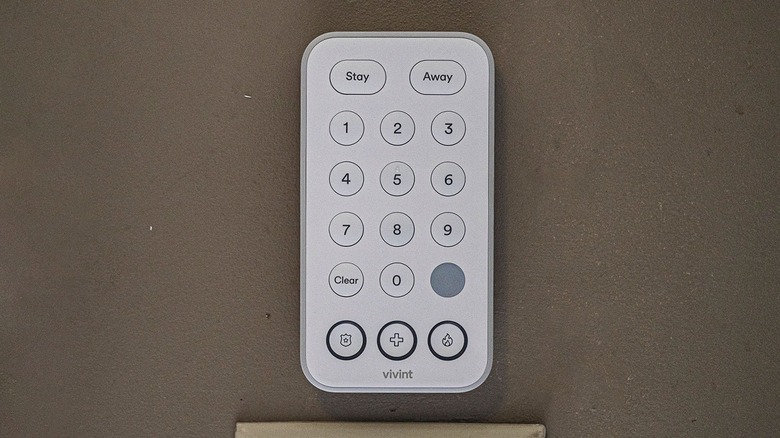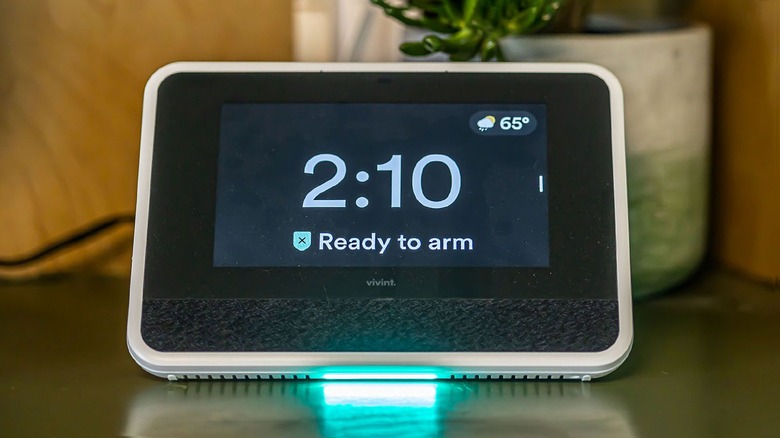Vivint Smart Home System (2023) Review: Modern Security In A Fully Connected Setup
- Powerful person-tracking outdoor spotlight
- Impressive nighttime clarity
- Ancillary sensors boost protection
- No mandatory contract
- One of the pricier home security brands
- Package detection isn't perfect
- Missing a few desired features
The most precious things in life are kept within your home, so protection isn't just an option, it's a necessity. Not only that, the quality of the protection you get matters more than you realize. Not all home security companies are created equal. Some are all-DIY systems that rely on the homeowner installing and overseeing the equipment protecting their livelihoods, while others utilize professionals to ensure that the line of defense standing between your home and dangers ranging from intruders to fires to floods is installed right the first time.
DIY-install home security devices have their strengths and shortcomings. They're often significantly more affordable but may lack the total home protection of a professional system. Joining the lineup of smart home security systems tested firsthand by SlashGear is Vivint, a brand focused on custom-tailored security system packages with professional monitoring and installation. Vivint systems can be contract-free if the equipment is purchased upfront, or financed over a period of three to five years. Its offerings include outdoor video surveillance, entry point sensors, and flood and fire monitoring all with the modern and intelligent control of a mobile app command center.
Vivint provided, installed, and covered the monthly subscription fee for the home security system components of this Smart Home System (2023) for the sake of this review.
Vivint system core devices
There are a number of products for tailoring the Vivint system to your home, but some of the core ones offered are a smart thermostat, video doorbell, control panel, and secondary panel for easy disarming from a bedroom or back door. The touch screen control panel shares similar capability to the mobile app with a few small differences — for example, arming from the mobile app is instantaneous while arming from the control panel gives you a 60-second delay to get out the door.
The important system functions like rebooting and adding users can also be initiated from the control panel, which can either mount to the wall or be adapted with a counter stand. My system's secondary panel, which is just a screenless keypad for disarming and contacting emergency services, was super convenient by the back door. Vivint's doorbell camera works exceptionally well, especially at night. Faces in the doorbell camera were impressively clear both at night and during the day (I had the video quality set to medium, out of lowest, low, medium, high, and highest).
The smart thermostat is very similar to that from other brands; it can be remotely controlled from the app, detect humidity and control a humidifier if applicable, and be set to schedules based on your work, travel, or sleep routines.
Managing the system via mobile app
Most of the Vivint security system's functions can be controlled by the mobile app. Adding new users and managing access levels, checking device battery life, and arming the system are just a few examples. You can also change your thermostat and set heating/cooling schedules in the app. Vivint's video surveillance playback options are plentiful and simple to operate.
You can recall footage from any point within the past 10 days regardless of whether an event was triggered, and watch it at regular, double, quadruple, or even eight times the speed. You can see the person detection events of a specific camera, or drum up all detection events across all video devices. I have tested other home security devices that have a screenshot function available when playing back video on the app, but Vivint's app was sadly missing this. Some app features might also only be available at certain subscription levels.
Otherwise, there's just about everything you need to control video in the Vivint app, notably increasing or decreasing video quality and setting movement detection zones. There does not seem to be any facial recognition availability; other brands tested can detect known faces and silence movement notifications if the person is a resident or welcomed visitor. It seems strange not to include this if you're competing in the smart home security space.
Some system components go above and beyond
Vivint's combination smoke and carbon monoxide detector was installed right next to an existing detector, at the end of a short hallway that diverges into bedrooms and a bathroom. There were no carbon monoxide events detected by either the home's existing detector or the Vivint one — but this location quickly proved to be a problem (or, rather, an over-remedied solution) for the Vivint detector.
It was sensitive enough to be tripped by steam coming from the bathroom every single time the shower ran, and sprinting from the bathroom to the alarm panel in a sopping-wet hurry to shut off the alarm gets old quickly. It was especially inconvenient that this alarm couldn't be disarmed from the Vivint phone app, considering that it was only ever steam from the bathroom that was an issue. While the older (also functional) smoke detector was never triggered by steam, the Vivint carbon monoxide/smoke detector was activated more than once during our review period.
Another Vivint product that perhaps works harder than it needs to is the outdoor Vivint Spotlight Pro. Almost every night and sometimes several times per night, the Pro believes it's detected a person — which might have actually been a branch or a glimmer in a car window or nothing at all — which triggers its floodlight, tracking, and deter noise if you have it turned on. There also doesn't seem to be any animal distinction capability in this camera, as this poor deer blinded by the spotlight (shown above) can attest.
Other aspects fall short of perfect
Vivint's new Doorbell Camera Pro is significantly more capable of detecting packages than other smart doorbells tested on this same exact door — but this function still isn't bulletproof. It was really impressive that the doorbell often informed me of a package just from seeing it in the delivery person's hands. But there was a dead zone in the doorbell's view where packages weren't recognized, as shown in the below screenshot of the doorbell's live view.
However, because the doorbell never fails to detect a person anyway, missing out on a package being delivered should never be an issue. It's also convenient that the system can be programmed to automatically turn on the doorbell's deter mode when a package is detected.
The only other major shortcoming discovered during the Vivint system testing was with the indoor motion detectors. The Vivint website and the installation professional both affirmed that the indoor motion detectors are intelligent enough to distinguish human movement from pet movement. The sensor's sensitivity can be moved from low to high, and it can also be adjusted for bigger or smaller pets.
Despite being on low sensitivity and adjusted for small pets, my very small kitten repeatedly set off the motion detector, which pretty much made the away mode useless when she was in the house. Through the app, you can tell the system to refrain from triggering the alarm when motion is detected while the system is armed, but this is annoyingly a one-time setting that you have to toggle on every time the system is armed. If the motion detector isn't capable of consistently distinguishing animal movement from human, I'd like to at least be able to bypass alarms from the detector indefinitely.
Ancillary sensors heighten the security
The water/flood/leak detection sensor from Vivint is incredibly effective — so much so that it was triggered just by the moisture detected in the installation professional's palm when he was holding it. That alone showed there wasn't much need to test the device, but I did anyway by pouring some water a couple of feet away.
As the spill moved towards the sensor, the excess moisture was quickly detected and an alert was sent to my phone before the water had actually even made contact with the device. In flood-prone basements, near washing machines, or under sinks where pipe freezing and bursting is a concern are all smart applications of this sensor.
Also tested in this Vivint system was the broken glass detection sensor: a battery-powered device that can be affixed to walls or ceilings, or left on the floor. Across its three sensitivity levels, the sensor is designed to detect the sound frequency of glass shattering. According to the Vivint installation professional, the sensor reads noise in a 15- to 20-foot radius. I smashed a glass cup in a controlled environment 15 feet away from the sensor, and it detected the noise without skipping a beat. But a bunch of other activities in the area — cleaning, moving boxes and furniture around, even running power tools — were sorted out as unimportant noise by the sensor.
The spotlight camera is an invaluable part of the system
Of all the products included in the Vivint system, the Spotlight Pro and Outdoor Camera Pro — which are installed together — absolutely stood out the most. With a 180-degree radius and up to 25 feet in range, plus up to 1800 lumens of brightness, the spotlight can illuminate entire driveways or backyards. The tester spotlight camera, which captures 4K Ultra HD images across a 140-degree field of view, was mounted above my roughly 40-50 foot driveway and captured the entire length of it plus some of the street, as pictured below.
I have not personally tested an outdoor home security camera as capable as this one. When the camera detects a human event, the spotlight activates in the direction of the movement, flooding the area with light and following the detected person until they leave the view, all while playing its predetermined deter sound ranging from bells to alarms.
The camera's human tracking works remarkably well, as shown in the video above. Since the floodlight can also stay at a constant light (set at your preferred level of dimness) and switch to maximum brightness when movement is detected, the spotlight and camera duo provide an immense sense of security for the exterior of your home.
Sensors all over
Window and door sensors are available within the Vivint security system to alert the homeowner to open windows and doors. These entry point sensors are universal and can be affixed to the interior side of any home window and door. There is one other type of door sensor, one designed for inconspicuousness that is discreetly installed between the door and the frame. There were no issues with the recessed door center tested in this system.
The surface-mounted window and door sensors consist of two separate parts — one installed on the window or door and one on the frame or wall where it closes –— secured via adhesive strips, that must come within about an inch of each other to register the window or door as closed. Only one issue was encountered with these sensors: On most of the windows, the window-side component of the sensors was installed too close to the edge, so it broke off and was sent flying the first time I closed the windows. Since these were stuck on with a strong adhesive backing, I could just reaffix them and hope the strength of the adhesive wasn't compromised.
Is Vivint worth it?
The Vivint Smart Home System (2023) is an extremely capable modern IoT home setup that provides a strong sense of security at a reasonable cost. The white-glove installation system and Vivint's customer service both deserve a ton of praise. Vivint's system is very close to having performed flawlessly. The biggest opportunity for improvement I see in the Vivint system is the continual expansion of the system's feature suite.
There are a few small missing pieces that would really elevate the Vivint system from excellent to perfect: The integration of fingerprint entry biometrics, temporary codes, and permissions to allow access for pet sitters and repairmen that expire at a certain time or within a preset time frame, and the ability to mute fire alarms from the mobile app. With that last issue, it makes sense to restrict the off switch to a person who is physically there to verify the lack of a real fire. But that, combined with the detector's sensitivity to steam, creates an issue of convenience. But Vivint already excels in all the major categories where it counts the most, including customer service and device support, 24/7 professional monitoring, and overall product performance and quality.
The full price of the system reviewed above would be $3,309.90 as quoted by Vivint. This price includes the Vivint Smart Hub, 2x Outdoor Camera Pro, Indoor Camera, and a Spotlight Pro. It also includes a Doorbell Camera Pro with playback enabled, 2x Smart Locks, a smart Thermostat, a Water Sensor, and a Smart/Carbon Monoxide Combo Detector. This setup also works with a Glass Break sensor, 3x Window sensors, 2x Door sensors, a Motion Sensor, and a Keypad.
